|
|
|
New Thinking in Industrial Policy: Perspectives from Developed and Developing Countries
November 1-2, 2024. Columbia University, New York. Hosted by IPD and
Firms & Industrial Policy Idea Lab of the Center for Political Economy (CDEP), Institute for Global Politics (IGP), and Center for Political Economy.
|
|
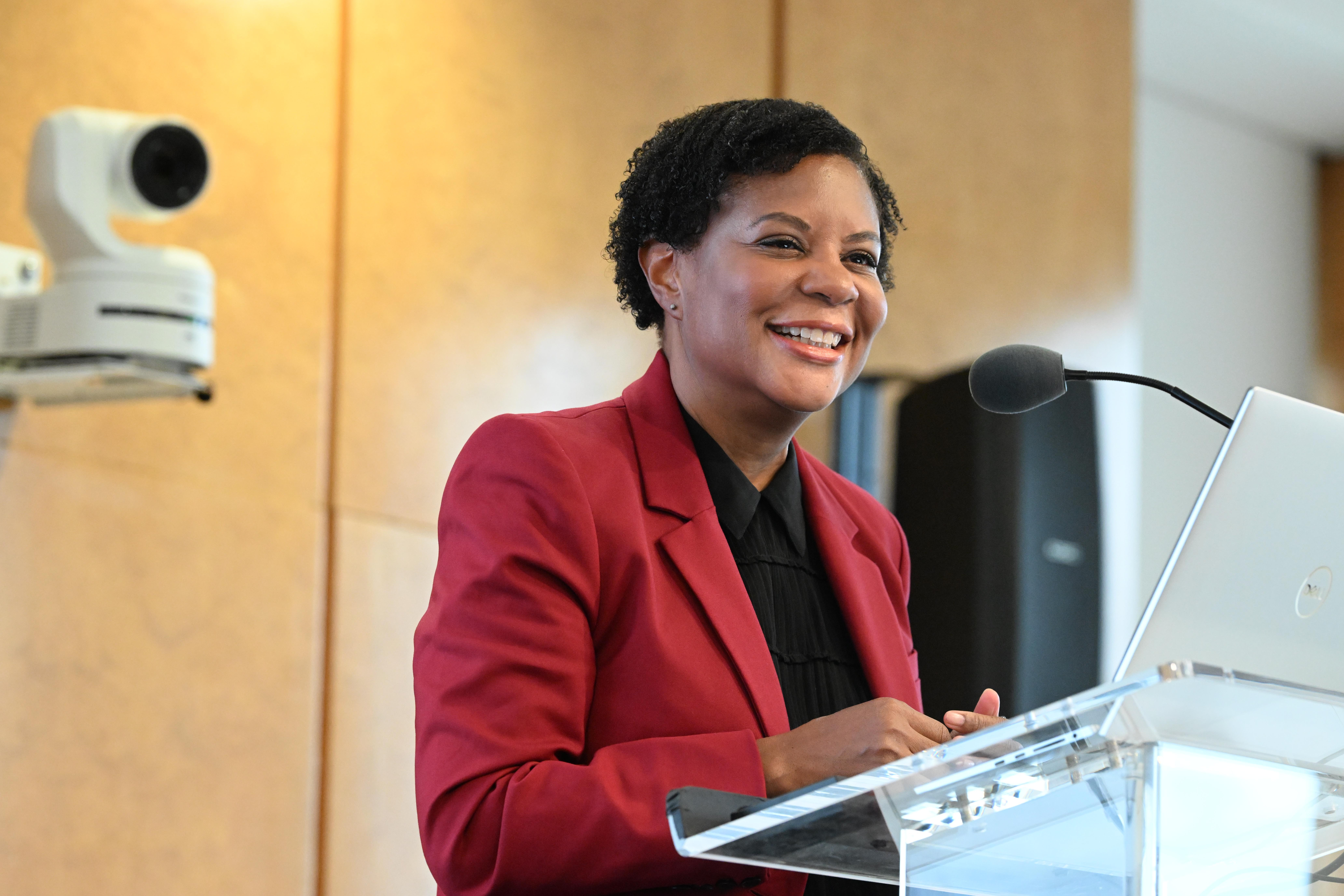 |
|
Alondra Nelson, Harold F. Linder Professor at the Institute for Advanced Study, delivered the opening keynote address. (Photos by Eileen M. Barroso.)
|
|
Industrial policy is back on policy agendas in the U.S., Europe, and many developing countries. IPD and CDEP at Columbia University hosted a conference, “New Thinking on Industrial Policy: Perspectives from Developed and Developing Countries,” during which participants discussed papers on the broad theme of industrial policy. Discussions included both theoretical and empirical studies.
Alondra Nelson (Institute for Advanced Study) and Dani Rodrik (Harvard Kennedy School) delivered keynote addresses and Mariana Mazzucato (UCL) gave a lunch talk. |
|
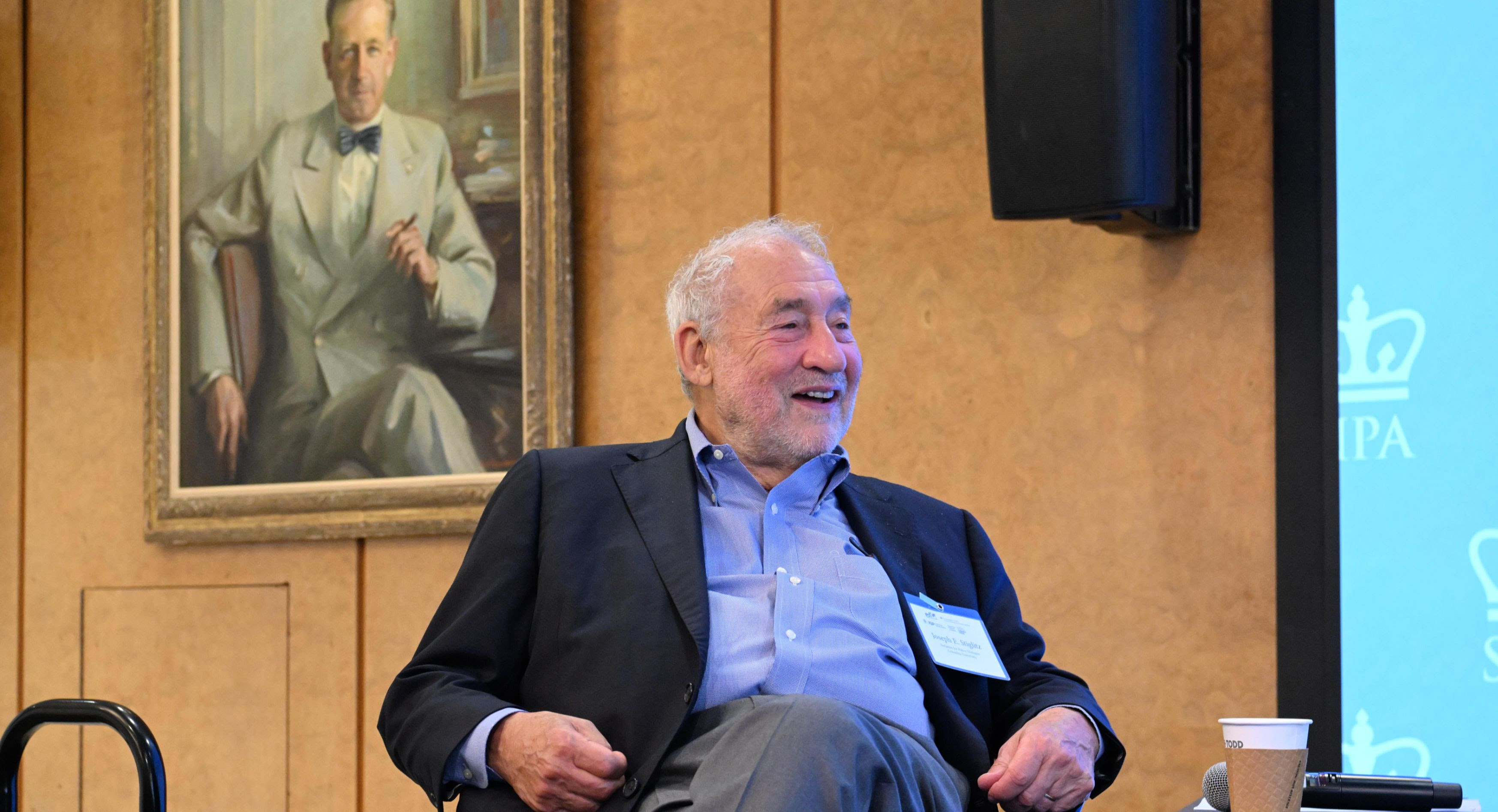 |
|
IPD co-President Joseph E. Stiglitz presented a paper about free trade without knowledge transfer authored with IPD co-President Martin Guzman.
|
|
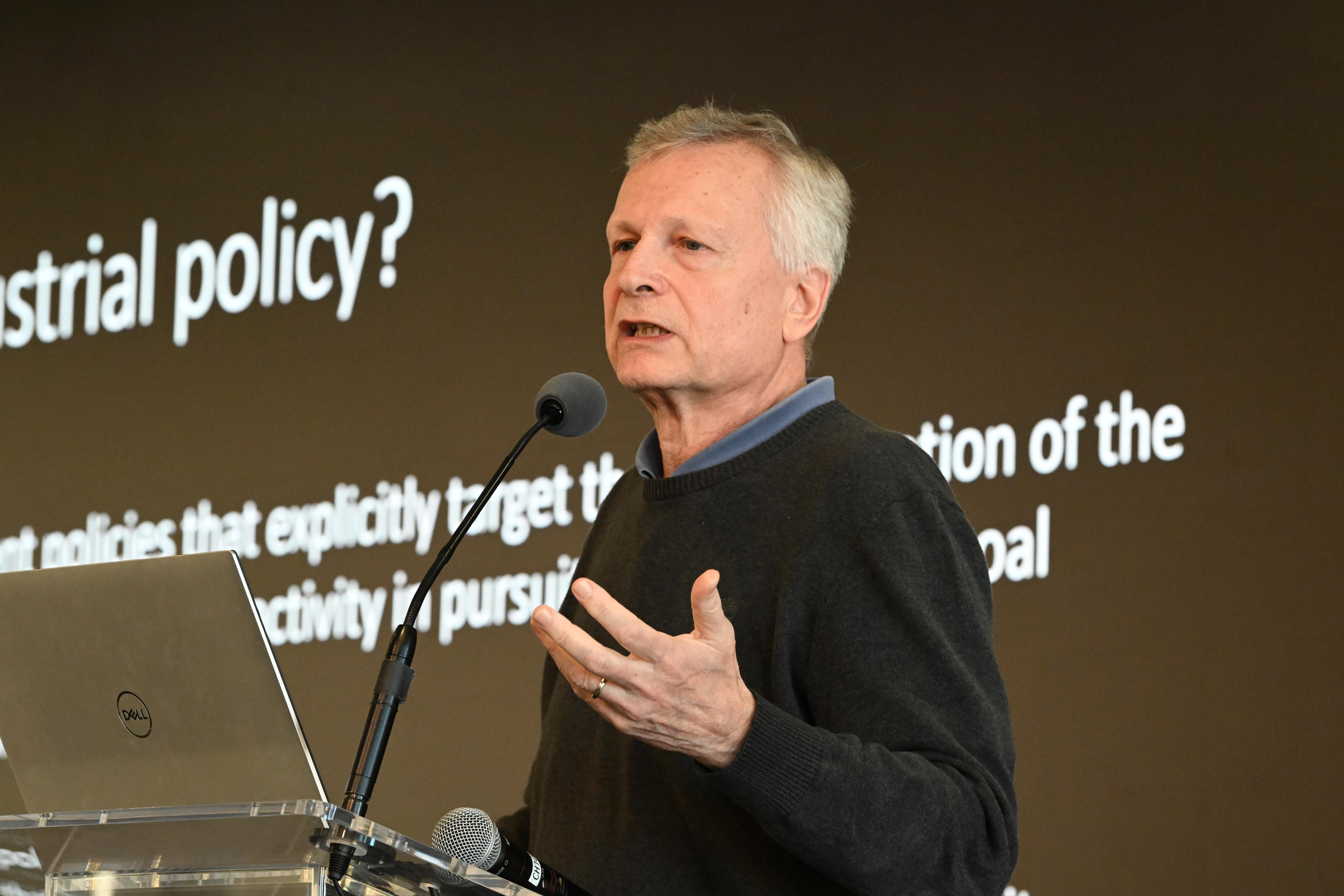 |
|
Dani Rodrick, Ford Foundation Professor of International Political Economy at
Harvard’s Kennedy School, delivered a keynote address.
|
|
The academic committee for the event was: Bilge Erten (Northeastern University), Martín Guzmán (IPD; Columbia, SIPA), Reka Juhasz (University of British Columbia), Nathan Lane (Oxford University), Felipe Lobel (Columbia University), Juan Montecino (American University), Andrew Schrank (Brown University), Joseph E. Stiglitz, Eric Verhoogen (Columbia University), and Josh Whitford (Columbia University).
You can watch the full conference here.
A full program including panels and speakers is available here. |
|
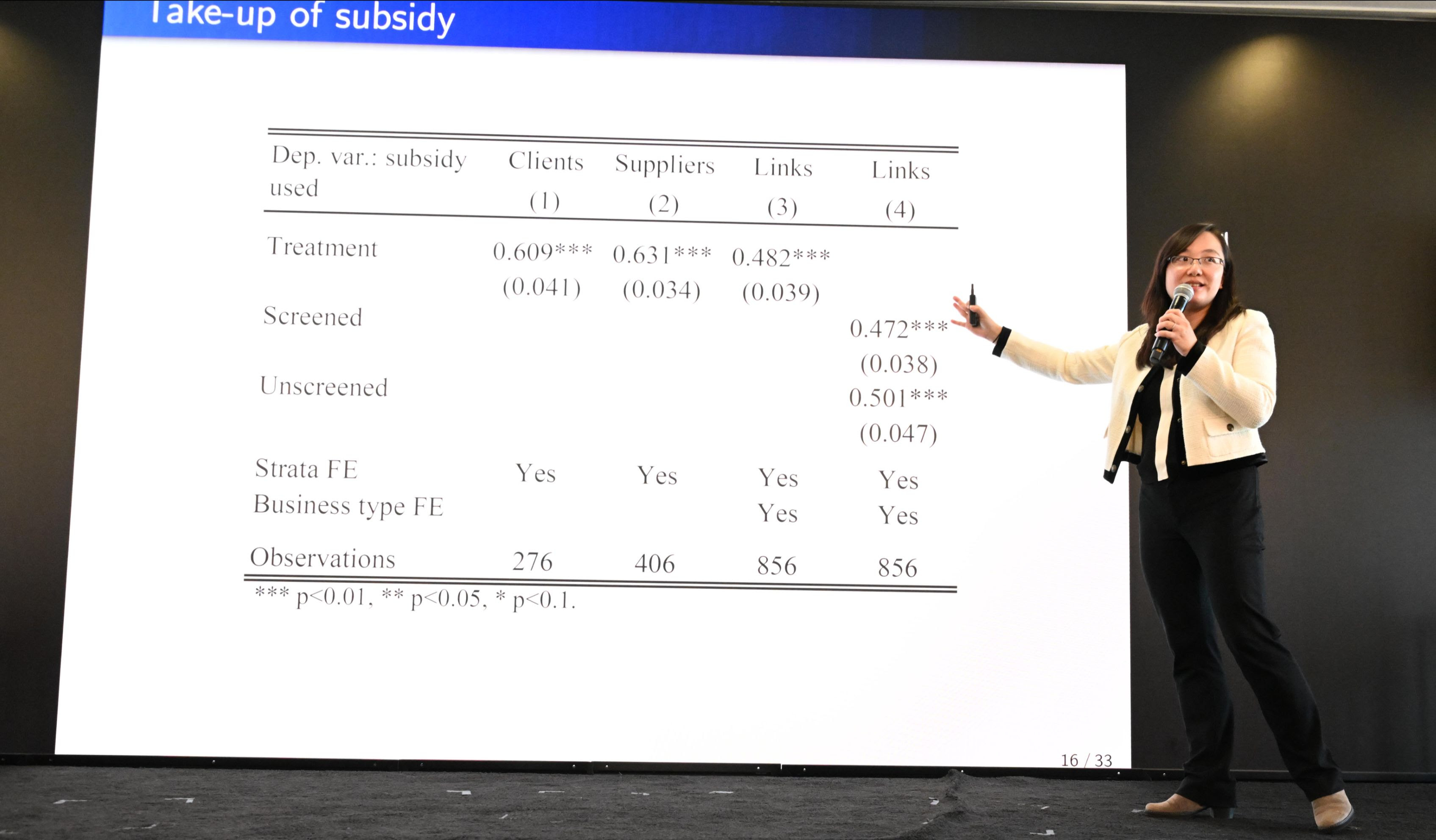 |
|
Jing Cai, Associate Professor at University of Maryland, delivered a talk on
firm-to-firm referrals.
|
|
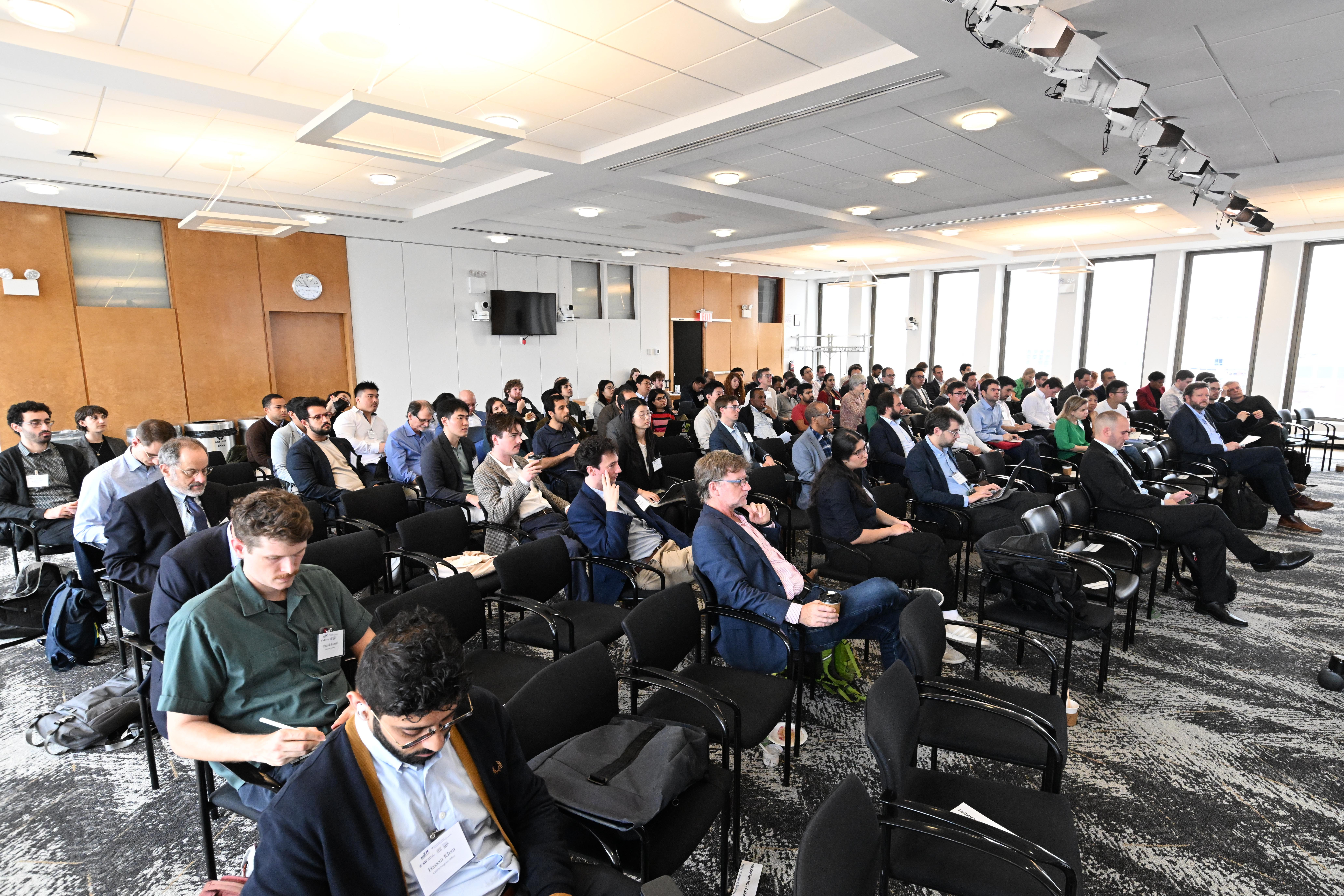 |
 |
|
Bilge Erten, Associate Professor of Economics and International Affairs at Northwestern University, (left) moderated a session on implementation with Joel Michaels of Law and Political Economy Project and Tobias Wuttke of Bard College Berlin (from the left) and Christopher Synder.
|
|
|
Addressing the Inequality Drivers of Pandemics Within the G20
October 29, 2024. Rio de Janeiro, Brazil. Hosted by the Global Council on Inequality, AIDS and Pandemics of UNAIDS.
At a special event organized for the G20 Joint Finance and Health Ministerial, the Brazilian government and experts from the Global Council on Inequality, AIDS and Pandemics backed calls for efforts to break the “inequality-pandemic cycle” that is fueling continued disease emergencies. Two crucial measures could enable the world to tackle current and future pandemics.
Nísia Trindade, Brazil’s Minister of Health, delivered opening remarks. During a panel discussion, Joseph E. Stiglitz, Sir Michael Marmot (Professor of Epidemiology and Director of the Institute of Health Equity at University College London), and Hon. Dr. Joe Phaahla (Deputy Minister of Health, South Africa) discussed building capacity for production to achieve equity, the social determinants of pandemics, and challenges and possibilities with debt, fiscal space, and the G20. Winnie Byanyima, UNAIDS Executive Director, United Nations Under-Secretary-General delivered closing remarks.
|
|
|
Rethinking Capitalism at The New Yorker Festival
October 27, 2024.Q 3-4 pm. New York, New York. Hosted by The New Yorker.
Joseph E. Stiglitz joined John Cassidy (The New Yorker) in conversation as part of the magazine’s annual festival. Cassidy writes a column about economics and politics for The New Yorker. Stiglitz’s most recent book, The Road to Freedom, reframes how to think about freedom and the role of the state in a twenty-first century society that has fractured by a series of crises including the financial crisis, opioid crisis, and the crisis of growing inequality. Cassidy and Stiglitz discussed how to reimagine the future of American capitalism.
|
|
|
Journalism and Democracy in an AI World
October 24, 2024. 6—7:30 pm. The Forum at Columbia University (Second Floor Auditorium), 601 West 125th Street. Sponsored by the Technology, Media, and Communications specialization at Columbia’s School of International and Public Affairs, Columbia World Projects, and McGill’s Centre for Media, Technology and Democracy.
This special panel was moderated by Anya Schiffrin (Columbia University, SIPA) and featured Katrín Jakobsdóttir (Former Prime Minister, Iceland), Melissa Fleming (Under-Secretary-General for Global Communications, United Nations), Lee C. Bollinger (President Emeritus and Seth Low Professor, Columbia University), Joseph E. Stiglitz, and Churchill Otieno (President, The Africa Editors Forum). Panelists discussed global efforts to support quality journalism, the need to protect free expression and diverse cultures, and the critical role of platform payments in sustaining reliable information.
|
|
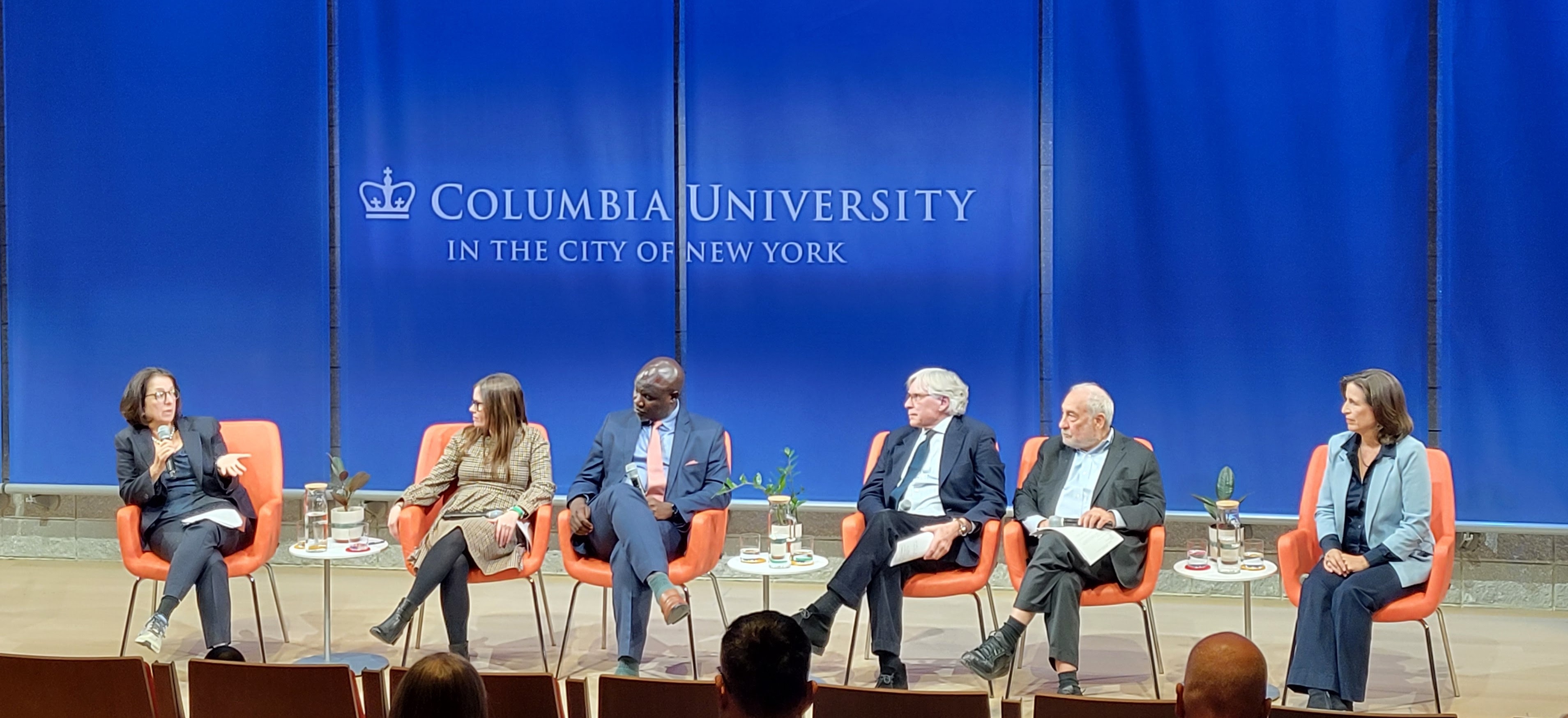 |
|
Anya Schiffrin, director of the Media, Technology, and Communications specialty
at Columbia’s School of International Affairs, moderated the discussion.
|
|
|
The conversation focused on how in an era where democracy hinges on access to accurate information, the global media landscape faces growing threats and shrinking resources. Behind the decline are tech behemoths that divert advertising dollars from news outlets to their platforms, platforms which have long profited from hosting news stories, headlines, and summaries. This business model rewards sensationalism at a time when we are just beginning to see the effects of generative AI on an informed electorate on which democracy relies.
|
|
|
Roundtable Discussion on New York Legislation for Sovereign Debt
October 23, 2024. World Bank Main Complex. Washington, D.C. Hosted by The World Bank Research Department, the Initiative for Policy Dialogue (IPD), and the Institute of Global Politics (IGP) at Columbia University.
|
|
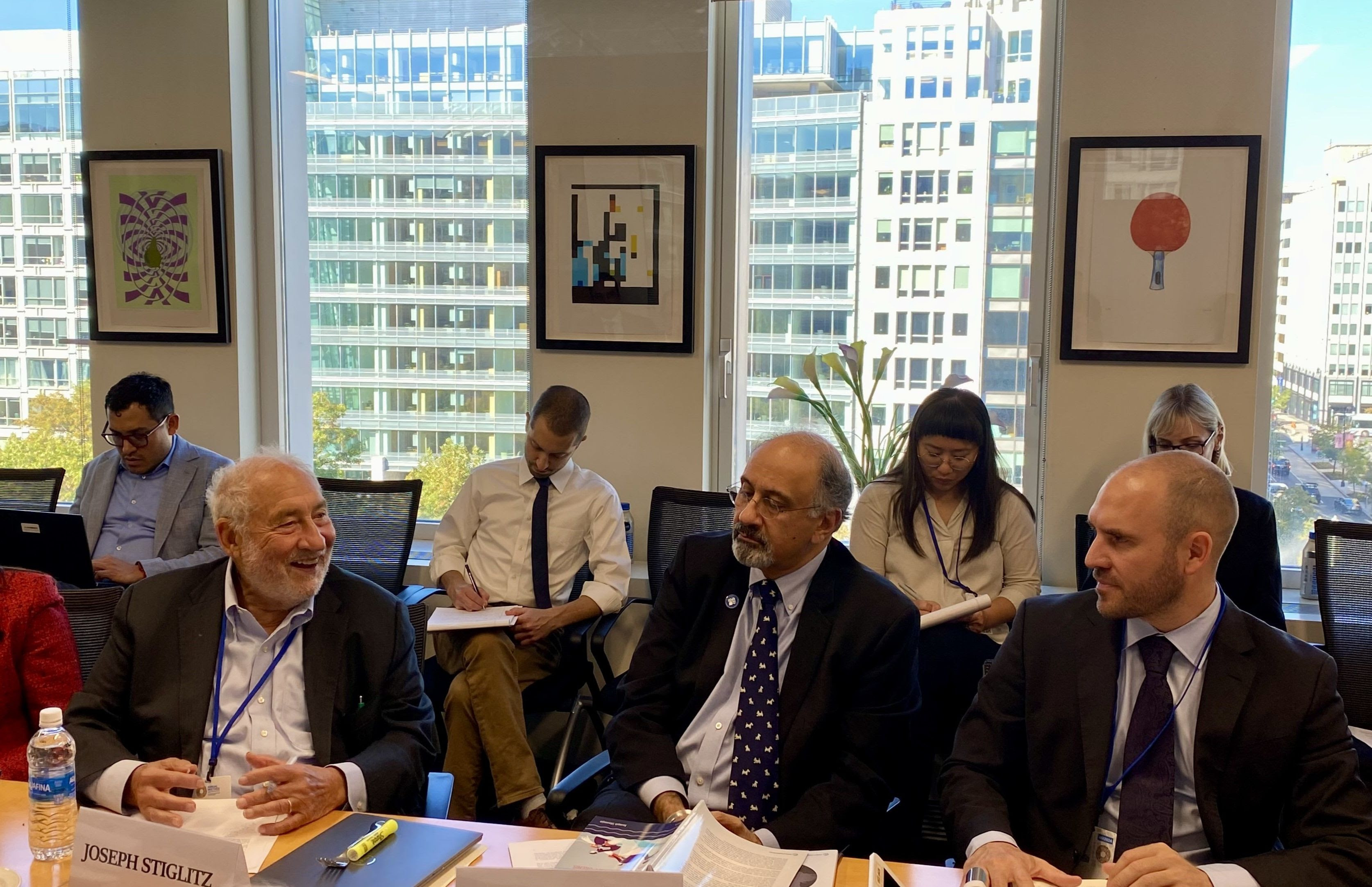 |
|
Joseph. E Stiglitz, Indermit Gill, and Martín Guzmán (from the left).
|
|
|
The IMF finds that 60 percent of low-income countries are either currently experiencing or at high risk of debt distress. Despite recent developments in contractual frameworks, the international debt architecture still has structural deficiencies that impede the resolution of debt crisis. One such deficiency is that the champerty law, which prohibited buying debt in default with intent of suing the issuer, was repealed from New York law in 2004. Since then, vulture funds have been able sue debtors, which imposes heavy costs on distressed debtors, citizens, and good-faith creditors. Meanwhile, the pre-judgment compensatory rate for debts in default under New York law—which governs more than half of percent of sovereign debt contracts—is 9%. As a result, reforming New York State law is an urgently needed step toward mitigating the global sovereign debt crisis.
A roundtable of experts, practitioners, and policymakers met at World Bank Headquarters alongside the 2024 International Monetary Fund/World Bank annual meetings to discuss possible avenues for New York State legislation to establish a fair, expeditious debt restructuring framework.
The discussion was chaired by Chief Economist of the World Bank Indermit Gill, Joseph E. Stiglitz and Martín Guzmán.
Congressional Briefing: Debt, Climate and International Financial Institutions (IFIs) from a Global South Perspective
October 23, 2024. Rayburn House Office Building Room 2245. Washington, D.C. Hosted by Center for Economic and Policy Research (CEPR), Oxfam America, Partners and Health, and the Initiative for Policy Dialogue (IPD).
The challenges facing the Global South are unprecedented — a vicious cycle of debt, climate change, and development challenges which threatens the future of the world’s majority. Yet the existing global economic architecture is woefully unprepared to confront this poly-crisis.
As the annual meetings of the World Bank and International Monetary Fund convene just down the street, leading economists and experts met to discuss how the twin crises of debt and climate impact the nations of the Global South. Participants weighed alternative methods of supporting Southern economies in the short term, and building a more effective, just global economic architecture in the future.
Niranjali Amerasinghe (Executive Director, ActionAid USA) moderated a panel featuring Andrés Arauz (Senior Research Fellow, Center for Economic and Policy Research); Martín Guzmán; Pepukaye Bardouille (Director, Bridgetown Initiative); Mark Weisbrot (Co-Director, Centerfor Economic and Policy Research); Alex Main (Director of International Policy, Center for Economic and Policy Research).
Promoting Equity and Efficiency: Rethinking Corporate Taxation to Address Market Power
October 23, 2024. Spring Valley Building. Washington, D.C. Hosted by Institute for Macroeconomic & Policy Analysis and Roosevelt Institute.
Tax inequity continues to drive other forms of inequity. This discussion of experts on tax issues focused on exploring innovative design options for a new corporate tax regime, with a focus on how strengthening the corporate income tax can reduce market power distortions while supporting both equity and efficiency in the tax code.
Joseph E. Stiglitz gave a talk titled “Can Corporate Taxes be Designed to Advance Both Efficiency and Equity?” Kimberely Clausing (UCLA School of Law) delivered the presentation “The Economic Case for a Graduated Corporate Income Tax (CIT) Rate Structure in the US. Reuven Avi-Yonah (University of Michigan Law School) gave a talk on corporate tax, which was followed by a series of discussions of issues related to tax equity.
Facing Liquidity and Debt Challenges in the Developing World
October 22, 2024. The Rockefeller Foundation. Washington, D.C. Hosted by The Rockefeller Foundation and The Bill & Melinda Gates Foundation.
Today, many developing countries are facing the financing pressures that risk crowding out sustainable development priorities. External debt service as share of revenues has doubled over the past decade for developing countries on average. Billions of people live in economies that spend more on interest than on health, education, and other development priorities. In response to this untenable situation, prominent experts, civil society leaders, and public officials are calling on G20 leaders to commit in Rio de Janeiro this year to a game-changing plan for supporting countries before they fall into debt distress. The proposals include the IMF-World Bank Three-Pillar Approach, the Nairobi-Washington Vision, the Bridge to Climate Action, and the Pathway for Sustainable Growth.
At the Rockefeller Foundation, several leaders of global conversations about debt reform, including Vera Songwe (Brookings Institute), Ishac Diwan (Paris School of Economics), and Joseph E. Stiglitz participated in discussions about how relevant financial institutions and stakeholders can advance these proposals.
|
|
Selected Media Appearances
Recent media about IPD team members and partners.
|
|
|
|
Recent Publications, Op-Eds and Papers
Recent publications by IPD team members and partners.
|
|
|
|
|
|
Post-Doctoral Fellowships in Economics at Columbia University
One or more postdoctoral fellowships in economics are being offered through Columbia University, to be supervised by Professor Joseph E. Stiglitz. The fellowships will last up to one year in duration, and occasionally, subject to the availability of funds, renewed for a second year, and the Fellows will participate in the research community at Columbia.
The Fellows will conduct their own research on a broad range of topics: corporate and public power, labor and wages, and the economics of race and gender inequality; industrial policy; sovereign debt; compensation and application process.
Find a full job description and application guidelines here. The deadline for applications is November 25, 2024.
|
|
|
The Journal of Globalization and Development (JGD)
|
|
|
The Journal of Globalization and Development (JGD) publishes academic research and policy analysis on globalization, development, and in particular the complex interactions between them.
Editors: Kevin Gallagher, Professor, Boston University Pardee School of Global Studies; Director, Boston University Global Development Policy Center and Jeronim Capaldo, Senior Economist, United Nations Conference on Trade and Development (UNCTAD); Senior Scholar, Global Development Policy Center, Boston University (BU).
Managing Editor: Gabriela Plump, Director, Initiative for Policy Dialogue (IPD), Columbia University.
|
|
|
|








